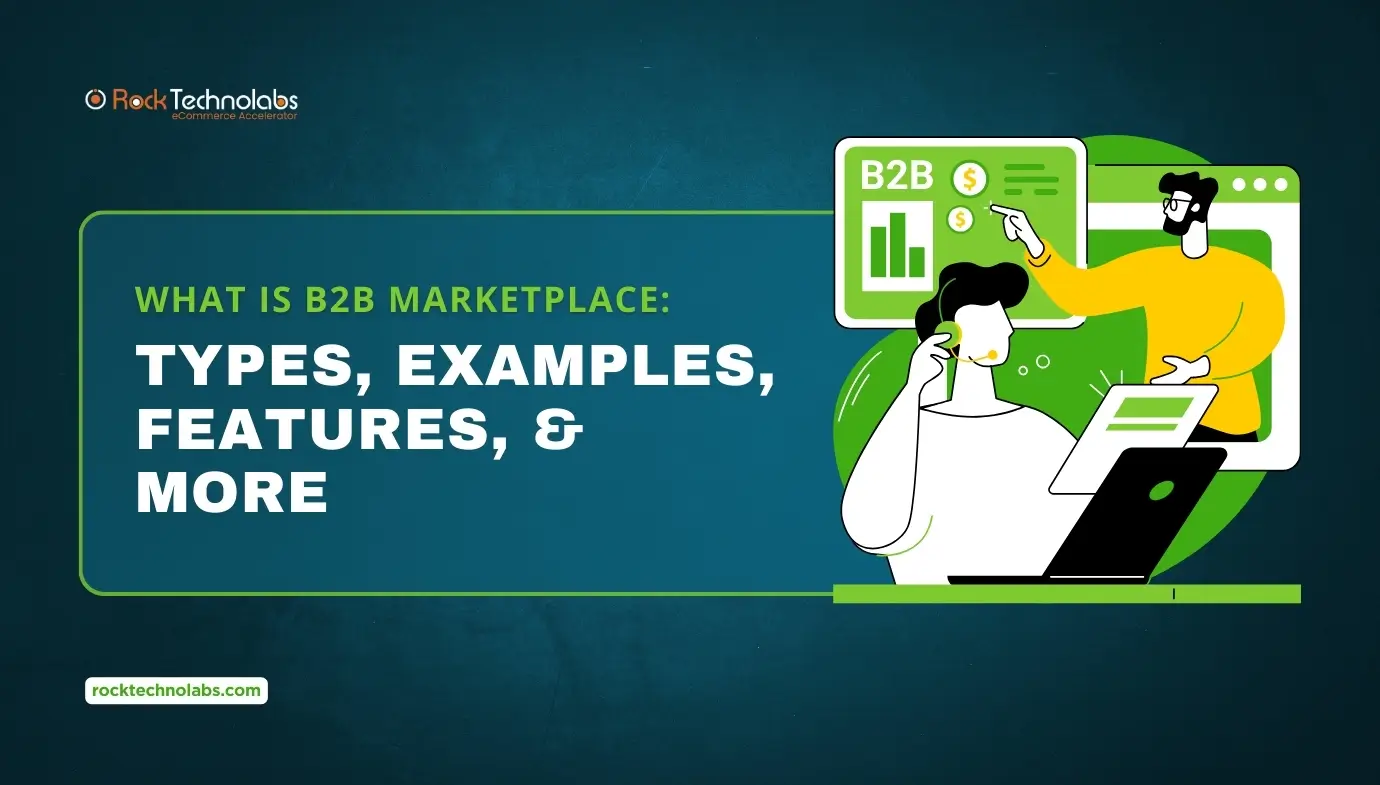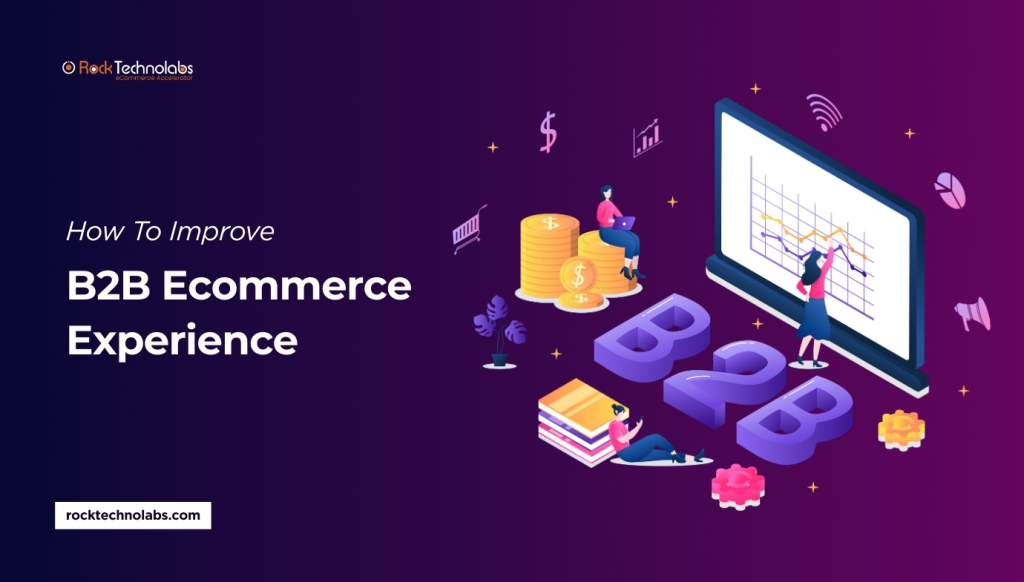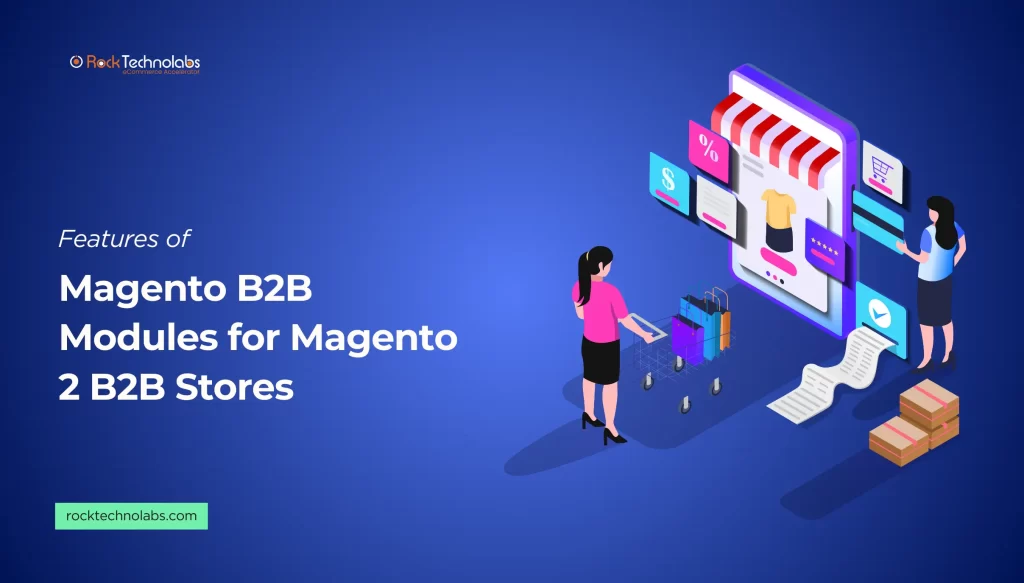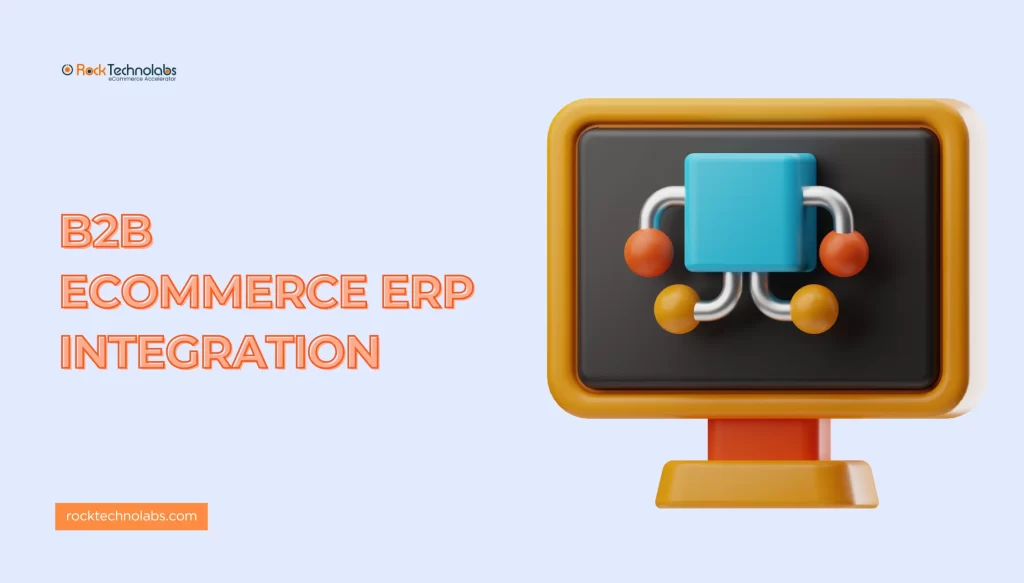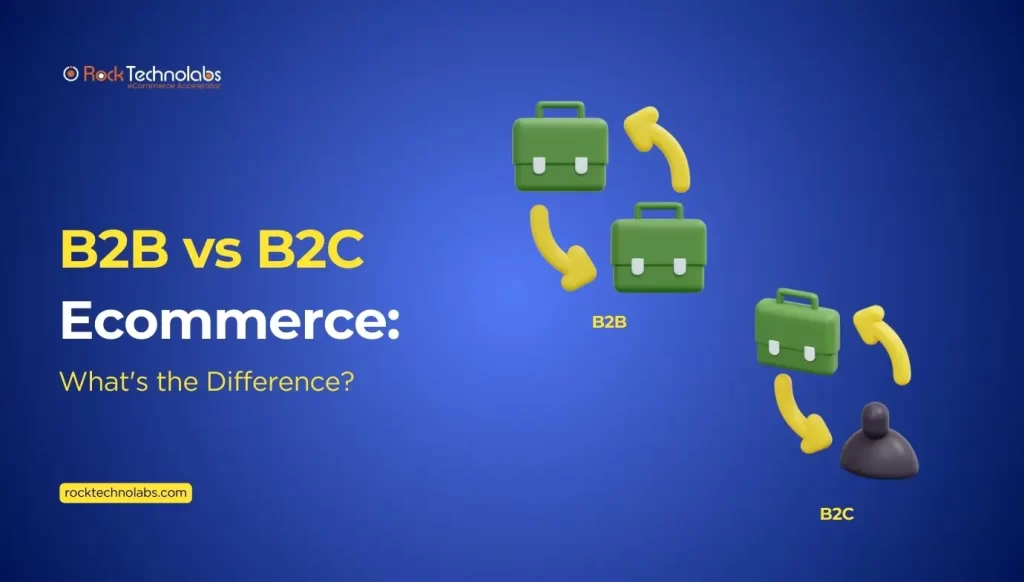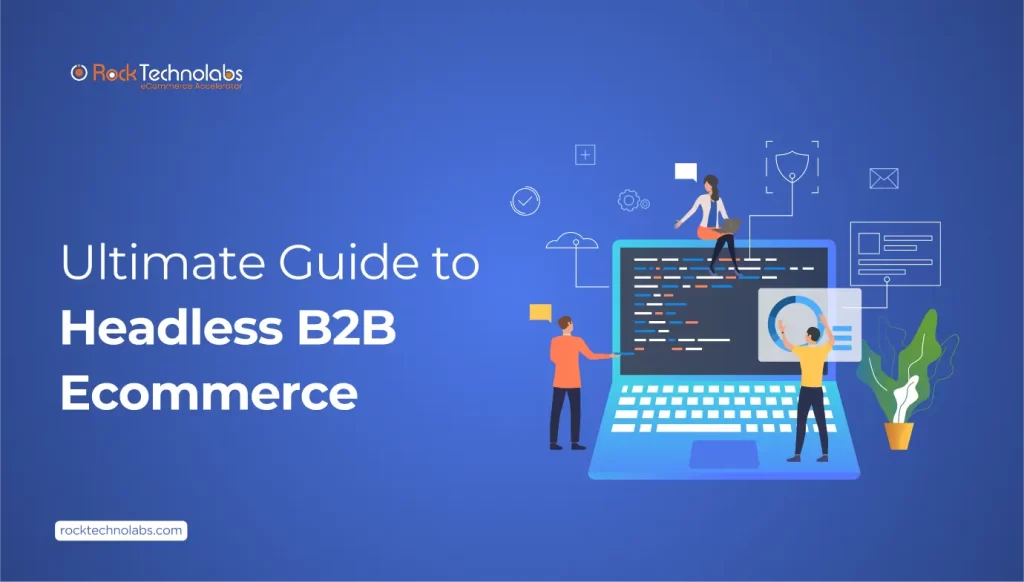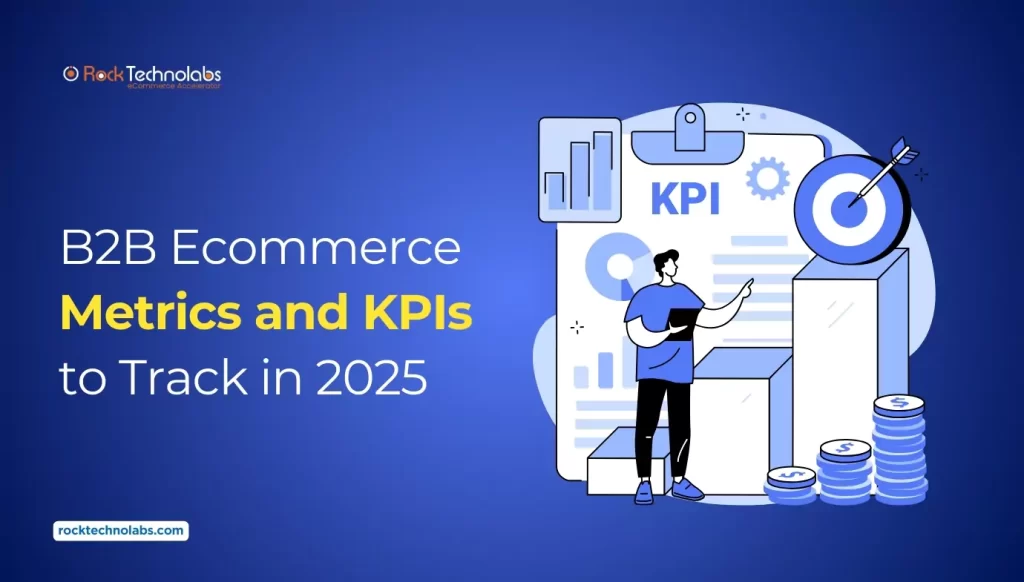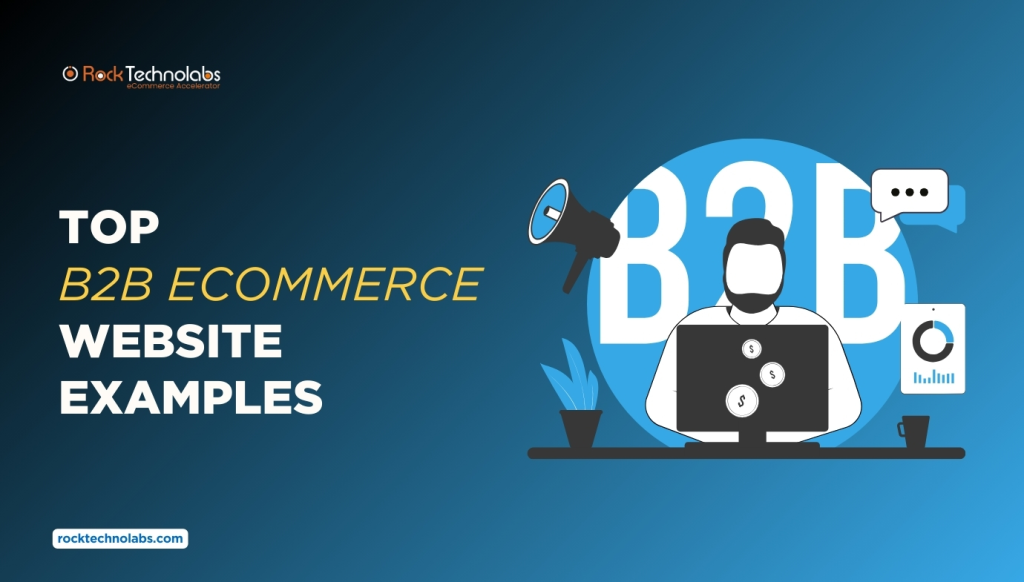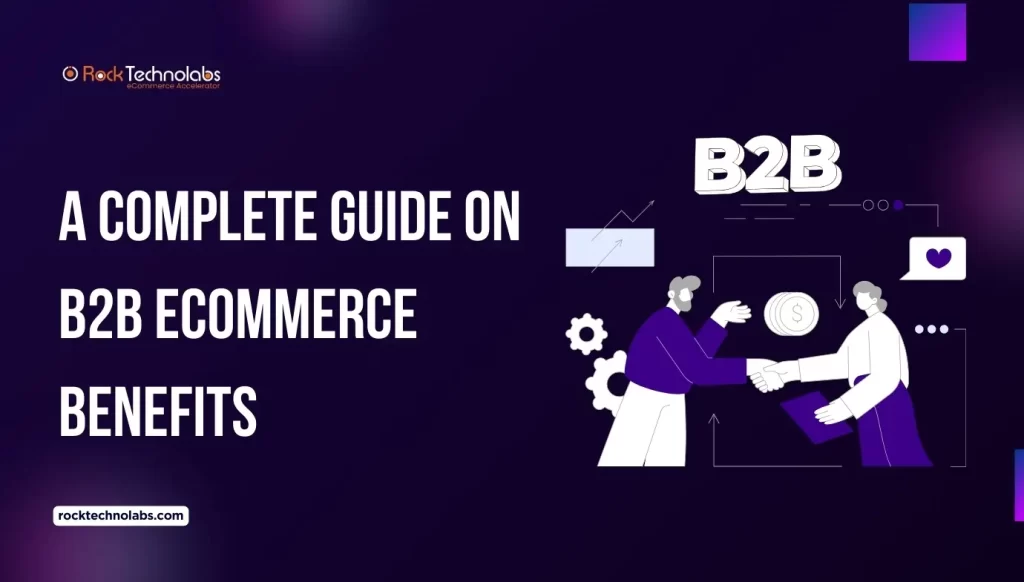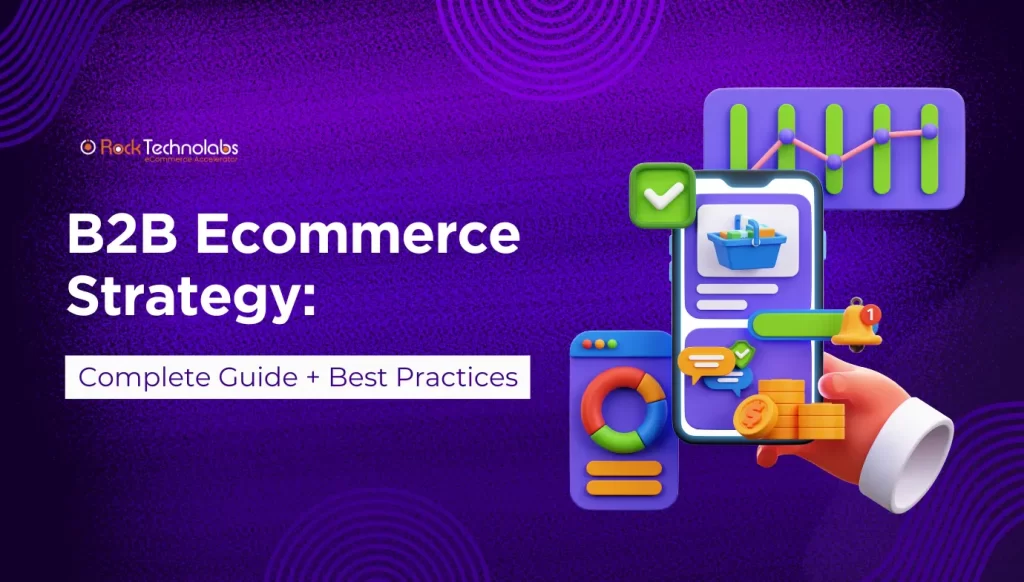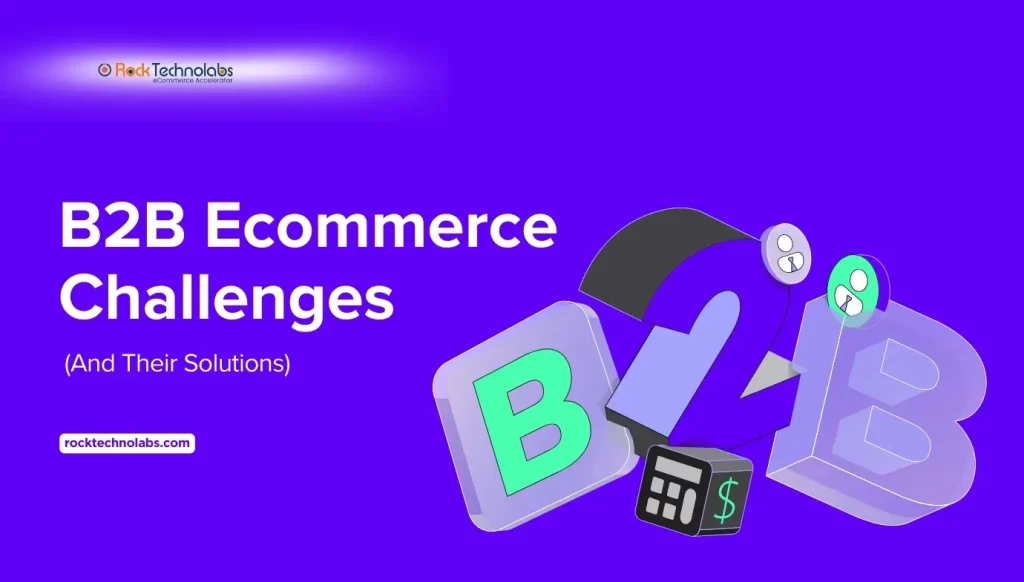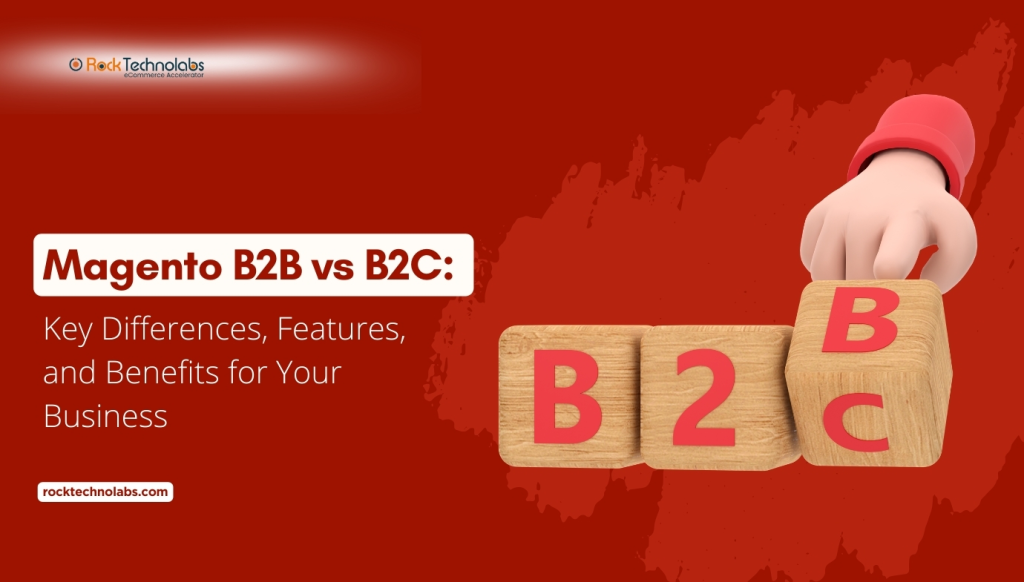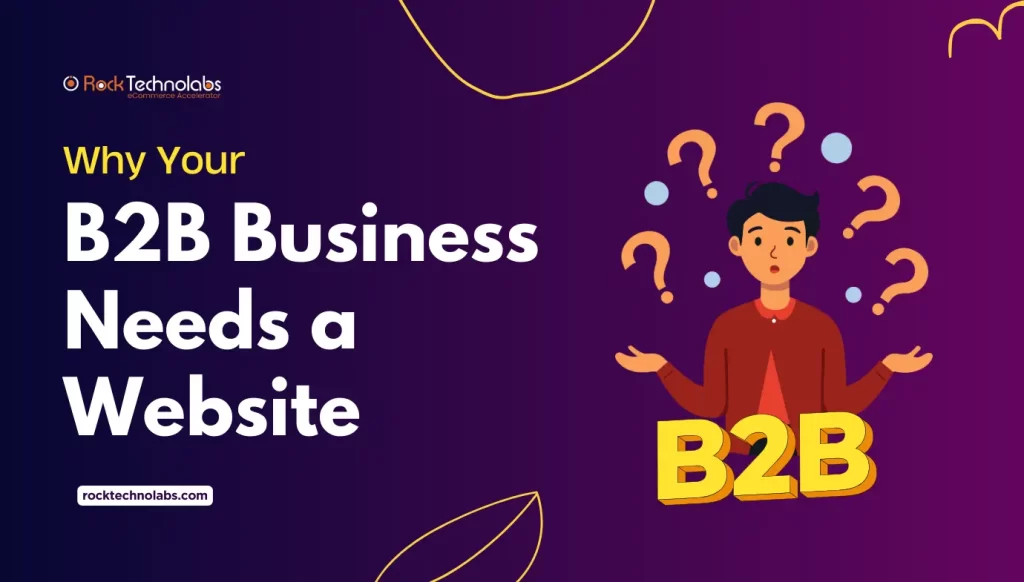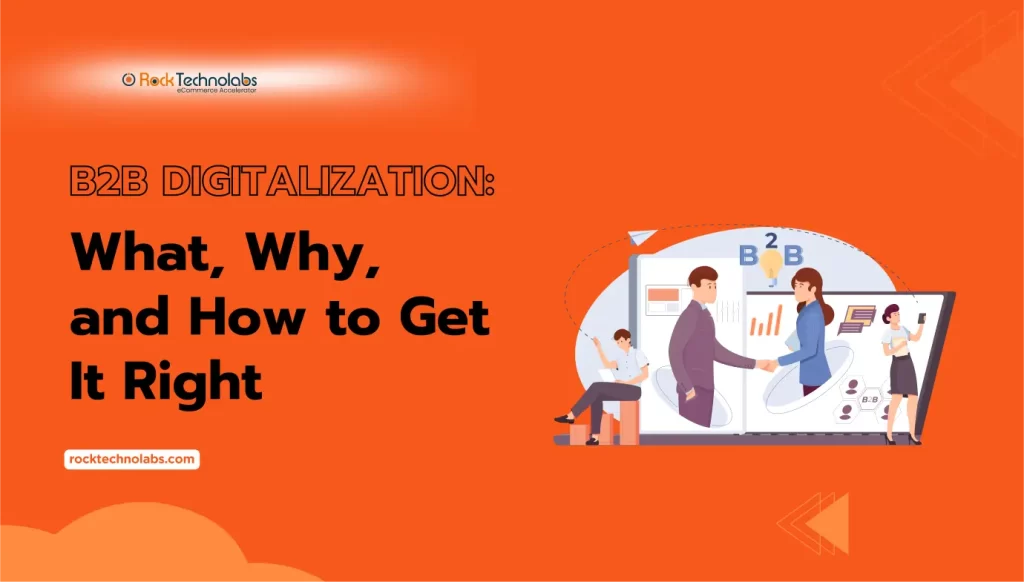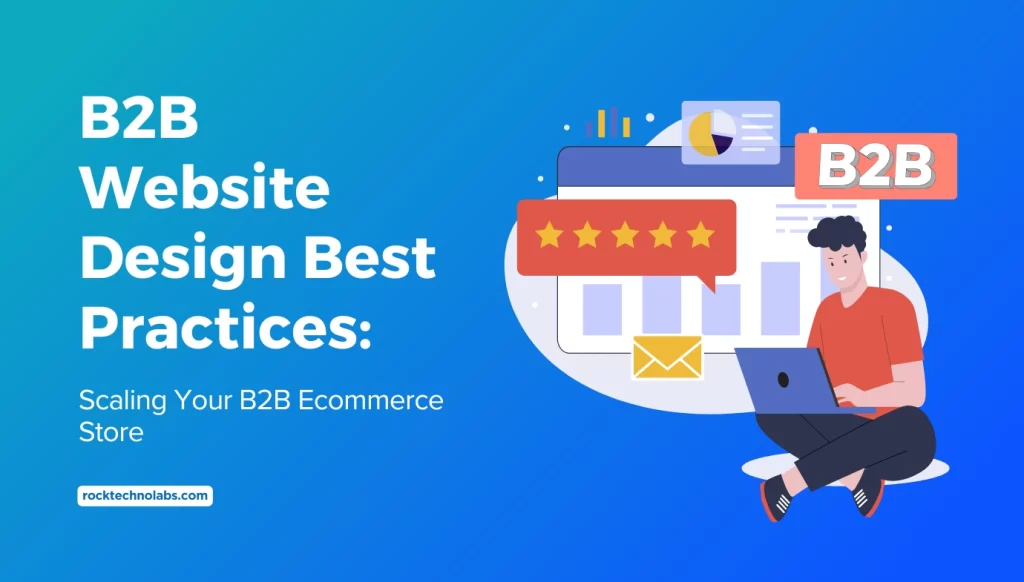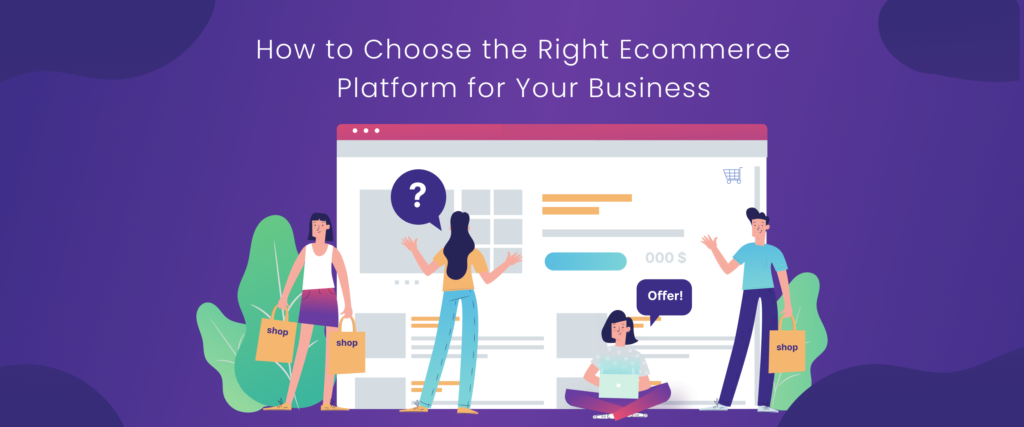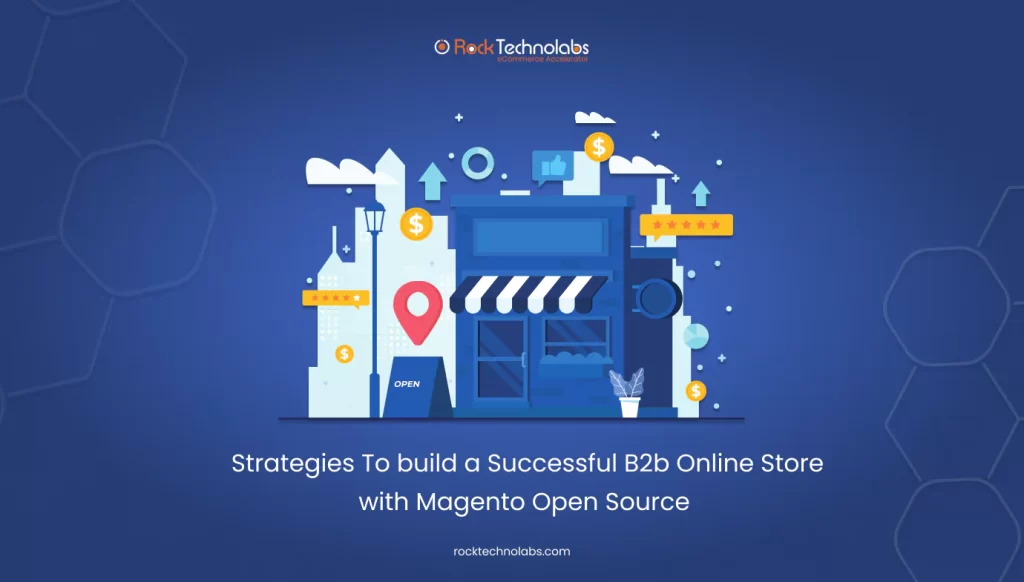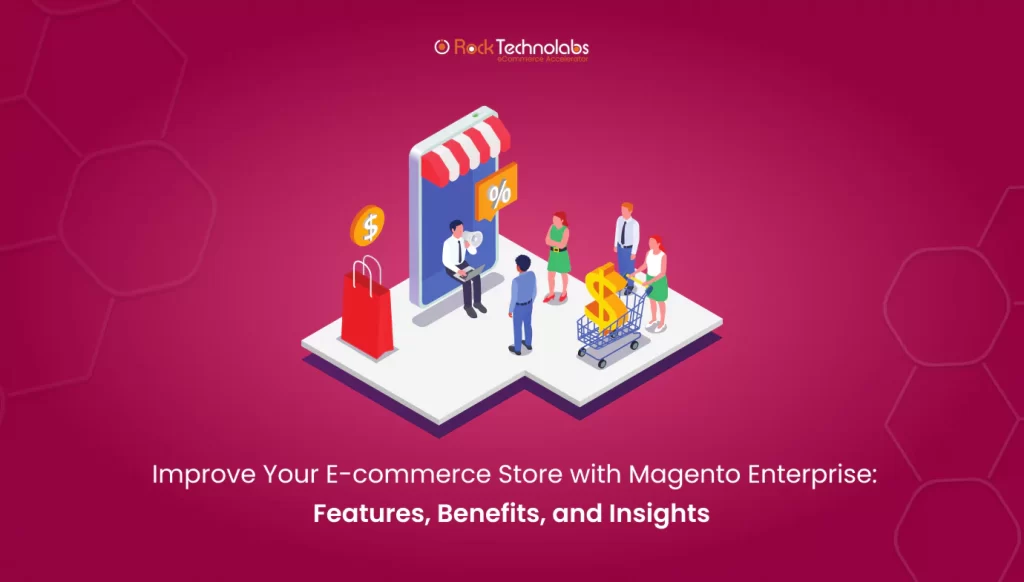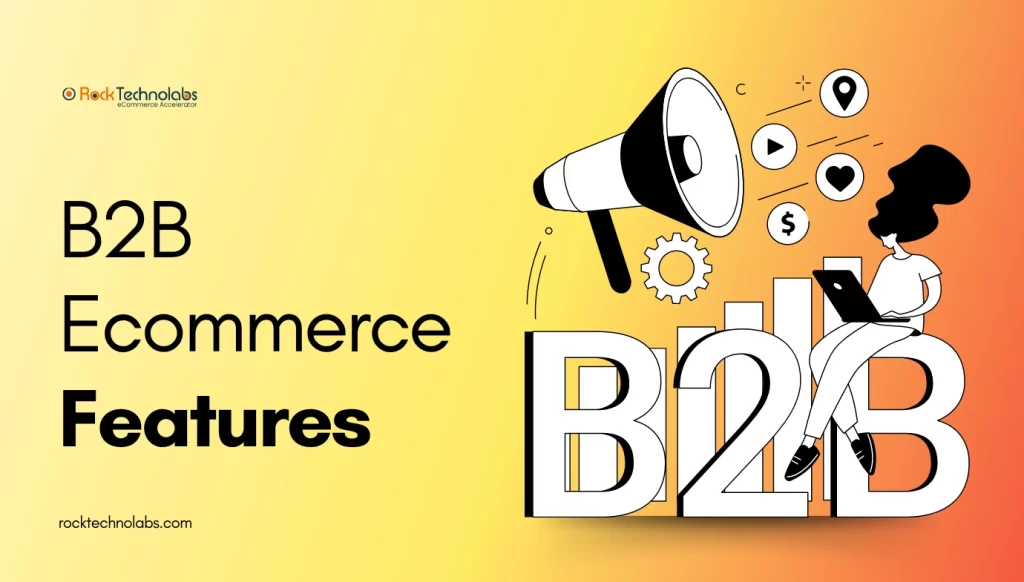Imagine this.
It’s Friday morning, and your production line suddenly halts – you’re out of essential parts. You quickly log into a marketplace like Amazon Business or Alibaba, find a verified supplier, and place an urgent order.
By lunch, you realize you need packaging materials, so you source them seamlessly on ThomasNet.
Later in the day, a client requests a custom product. You connect with a new vendor on Global Sources, finalize pricing, and schedule delivery – all in minutes.
This was all made possible by the B2B Marketplaces.
Let’s explore what is a b2b marketplace, its benefits, types, and features, and why businesses worldwide rely on it every day.
What is a B2B Marketplace?
A B2B ecommerce marketplace is much of a digital channel to buy and sell products or services between B2B businesses.
Picture this: A one point platform where manufacturers, wholesalers, and distributors display what they offer while other businesses come here to browse, compare, and order in bulk from across the globe.
Its bottom line objective is to facilitate, simplify, and expedite methods of how businesses get relevant suppliers, negotiate offers, and manage bulk orders.
Types of B2B Marketplaces
Based on their business model B2B marketplace can be categorized into the following categories:
1. Vertical Marketplaces
A vertical or niche B2B online marketplace is one that sells wholesale products for just one product category.
These platforms provide customized goods, services, and tools to meet the unique requirements of their target industries.
While a manufacturing vertical marketplace might concentrate on raw materials, components, and custom production services, a healthcare sector vertical marketplace might offer medical equipment and tools for regulatory compliance.
The key strength of vertical B2B marketplaces lies in deep industry expertise and the simplification of processes for niche buyers and sellers.
They often incorporate features such as verified supplier profiles, industry-specific product catalogs, and tools for requests for quotes (RFQs).
Platforms like ThomasNet for industrial goods showcase how vertical marketplaces create efficiency, foster trust, and address the needs of businesses in a given domain.
2. Horizontal Marketplaces
A Horizontal Marketplace is a platform serving several industries with a broad product line and services across multiple industries.
Unlike vertical marketplaces, horizontal marketplaces aim at general business solutions rather than specialized niche offerings.
Such marketplaces, such as Alibaba or Amazon Business, allow companies to purchase everything from office supplies to industrial equipment.
Their broad product categories and scalability make them ideal for companies seeking diversified procurement options and cost efficiencies.
3. Product Based Marketplaces
Centered on physical goods like raw materials, machinery, or finished products.
A product based marketplace is a site primarily meant for the purchase and selling of physical products between business partners.
These sites provide platforms for wholesalers, manufacturers, and retailers by allowing these buyers and sellers to browse a comprehensive product inventory with bulk purchases, tiered pricing, and product details.
Ecommerce Platforms like Alibaba for global trade, which help businesses find inventory efficiently, compare suppliers, and negotiate prices in streamlined procurement and supply chain management.
4. Service Based Marketplaces
A Service-Based B2B Marketplace connects businesses with service providers, focusing on offering professional or operational services rather than physical products.
The markets are for freelancing, logistics, consulting, and software solutions.
One example is Upwork, which enables companies to employ skilled independent freelancers for tasks like programming or design.
Businesses can more easily access knowledge and solutions through a service-based marketplace, which also makes it easier to find, hire, and manage service providers.
Top Examples of B2B Marketplaces
Here are some of the popular online B2B marketplaces:
1. Alibaba
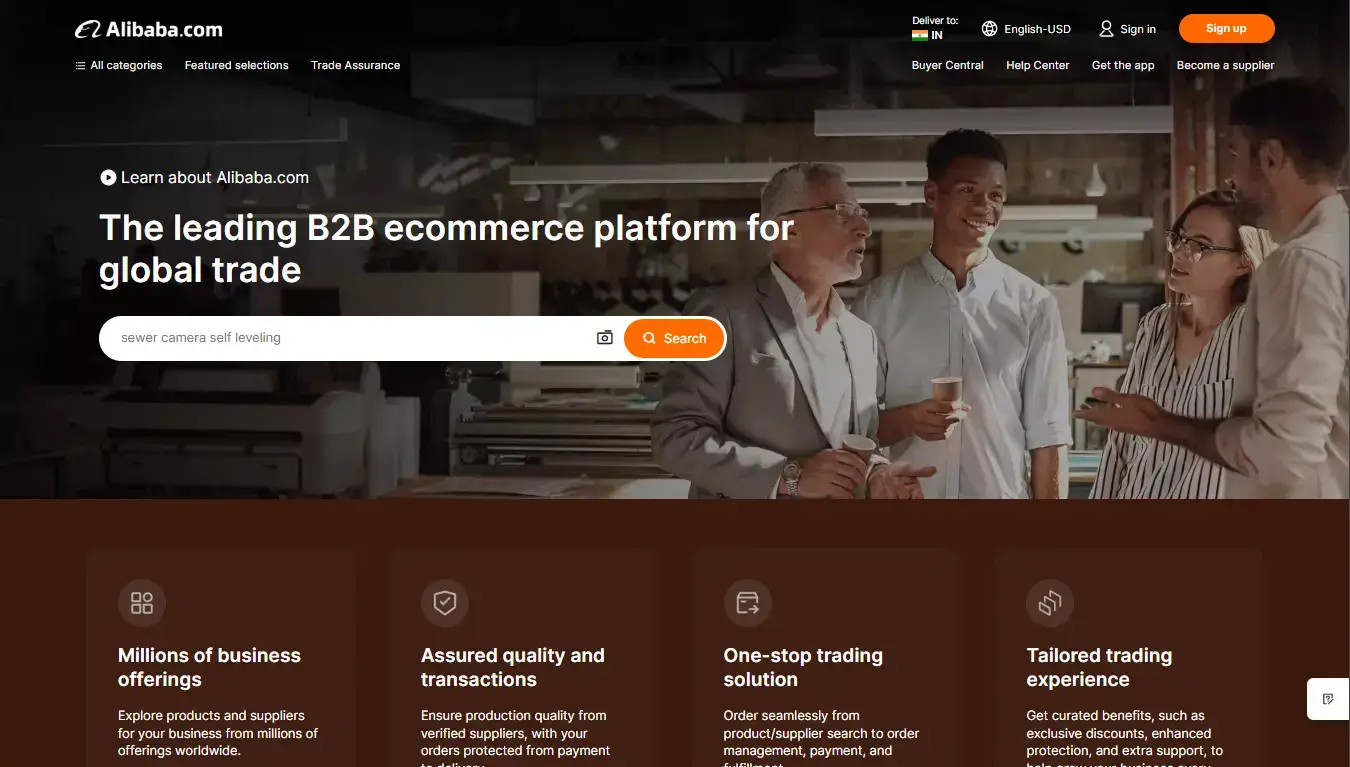
Leading eCommerce platform – Alibaba, connecting buyers and suppliers globally.
Features offered by this marketplace are global reach, diverse product range, competitive pricing, complete logistic & shipping support, and much more.
2. Amazon Business
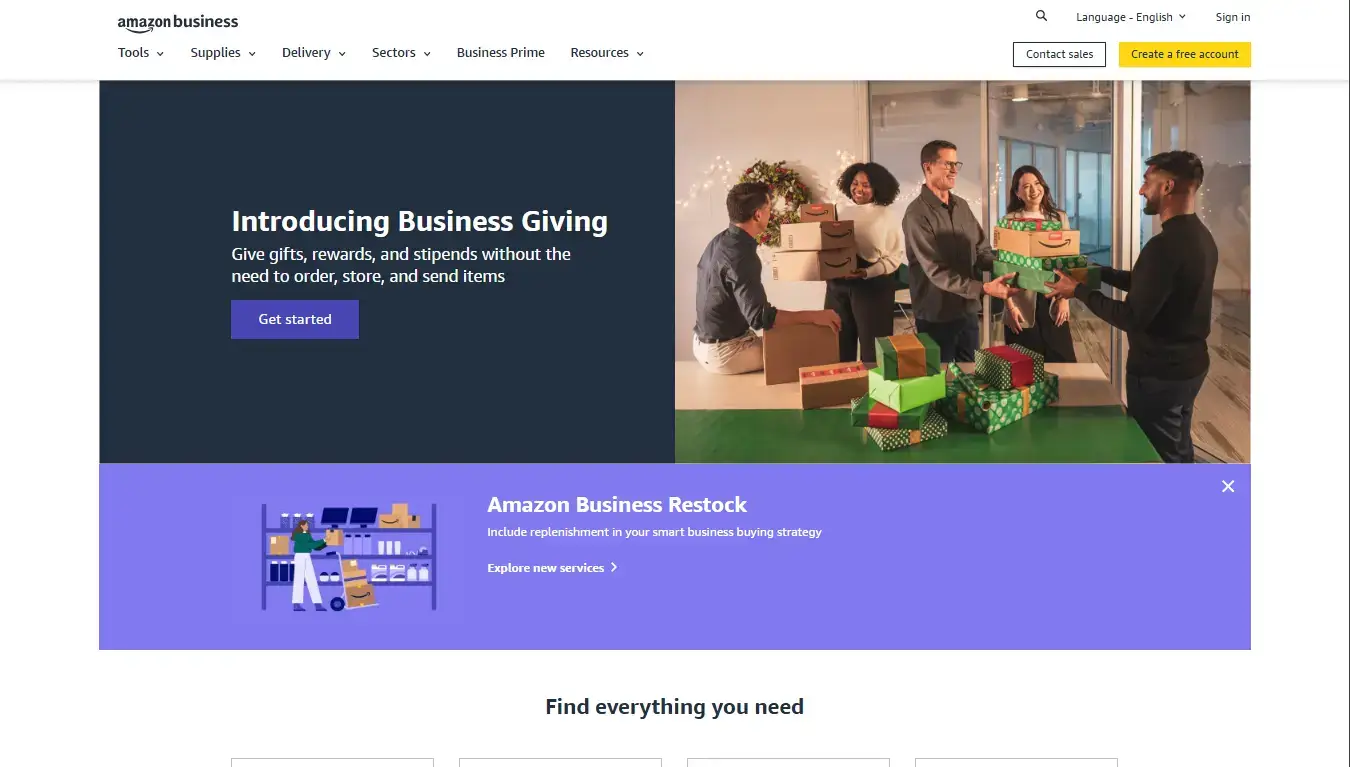
Amazon Business – World’s largest B2B online wholesale market that believes in changing the world of procurement.
Do you know that Amazon Business reached USD $35 billion in annualized sales in 2023?
3. ThomasNet
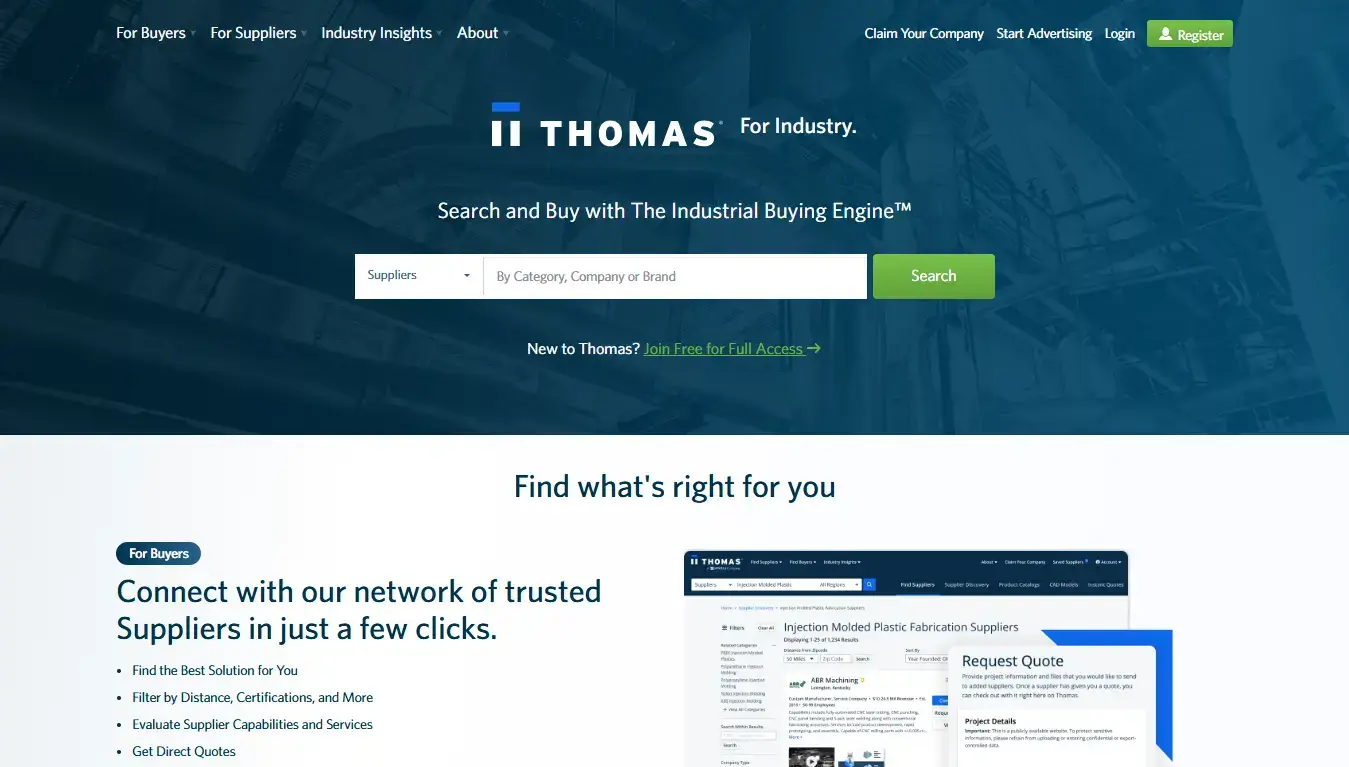
Welcome to Thomasnet, the game changing B2B marketplace that is digitizing the way businesses source and procure products.
By using Thomasnet’s cutting edge platform, goodbye to tedious procurement processes and hello to unprecedented efficiency gains.
4. Global Sources
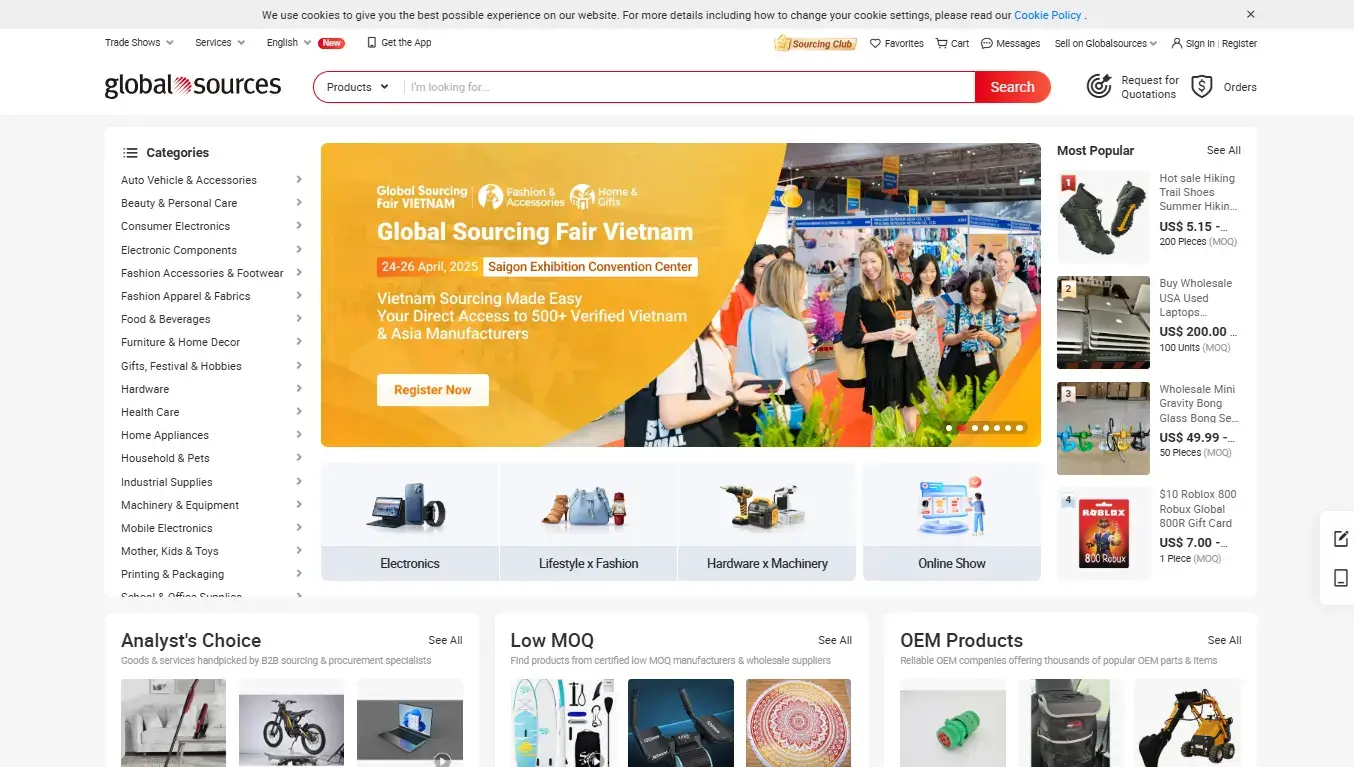
One of the trusted B2B marketplaces – GlobalSources, connects buyers with verified suppliers from around the world.
It is authenticated and reliable because of the verified supplier profiles, product sourcing tailored to customers’ needs, and integrated trade shows.
The website also allows for streamlined procurement using Request for Quotation tools.
Top Must-Have Features Of A B2B Marketplace
Here are all the features of a B2B wholesale marketplace, explained in detail:
1. Advanced Search and Filtering
Advanced search and filtering options help businesses find exactly what they need.
Category specific searches, attribute filtering, and keyword searches ensure users can quickly locate the products or services they require.
This feature not only enhances user experience but also increases conversion rates and saves time for businesses.
2. Detailed Product Information
To make well informed purchasing decisions, businesses require thorough information.
With all the information you need in one location, your platform should provide thorough product descriptions, specifications, photos, and certifications.
This feature is important to build trust with potential buyers and reduce inquiries and support requests.
3. Customizable User Roles and Permissions
Different users with different roles are common in businesses.
To guarantee that the appropriate individuals have access to the appropriate features and data, your platform should enable user roles and permissions to be customized.
By guaranteeing that every user has access to the pertinent data, will boost efficiency, improve user experience, and strengthen security by lowering the possibility of unwanted access.
4. Customizable Pricing and Negotiations
B2B often is a negotiated deal. Therefore, a good platform would have the flexibility to allow negotiation for a price between the buyer and the seller so that both end up getting the best value possible.
Use this feature to increase flexibility, enhance user experience by allowing buyers and sellers to negotiate, and increase conversion rates by accommodating different pricing models.
Read More: 10+ B2B Ecommerce Trends For 2025
5. Self-Service Functions
Account management, order tracking, and returns processing are the features through which businesses can manage their interactions independently so that they save time and enhance satisfaction.
6. Bulk Ordering and Tiered Pricing
Your system needs to support bulk purchasing along with tiered pricing models.
In this way, it helps businesses purchase large volumes in bulk at discounted prices, enabling effective management of inventory as well as budgeting.
7. Security and Compliance
Ensure your platform adheres to industry standards for security and compliance.
Features like secure payment gateways, data encryption, and user authentication protect sensitive business information and transactions.
8. Reliable Customer Support
They also include live chat, help desks, and detailed FAQ pages for excellent customer support.
Fast and efficient support encourages trust and a great experience for the user.
Suggested Reading: 10 B2B Ecommerce Challenges (And Their Solutions)
9. Optimized Procurement Processes
Simplify the process with features like purchase order management, automated invoicing, and easy reordering.
This reduces administrative overhead and speeds up the buying process.
10. Analytics and Reporting
Analytics and reporting tools are available that assist businesses in tracking performance and determining buying patterns.
Based on sales and inventory level information, along with how their customers behave, insights help businesses make strategic planning decisions and grow.
11. Integration Capabilities
It must be integrated with other business systems, such as inventory management software and CRM, to ensure smooth data flow and operational efficiency across the organization.
12. Real-time Inventory Updates
Update the inventory details in real time.
Through this, buyers will always see accurate stock levels that reduce the chance of overselling and backorders, hence helping vendors manage their inventories more efficiently.
13. Scalability
Scalability allows the platform to support increasing traffic, higher transaction rates, and an extended product catalog for businesses as they scale.
For more features, you can check our recent blog on Top 10 Must-Have B2B Features.
Advantages of a B2B Marketplace
#1. Wide Access to Suppliers and Buyers
Businesses acquire worldwide reach towards verified suppliers and buyers.
Example: A U.S.-based furniture retailer can acquire bulk wood and upholstery materials from international suppliers on Alibaba.
#2. Cost Savings
Competitive price quotes, bulk discount advantages, and the possibility to compare various suppliers in a single place reduce the acquisition cost.
Example: With ThomasNet, a small manufacturing firm can negotiate the best terms for raw materials.
#3. Procurement Efficiency
Automated tools for ordering, shipping tracking, and invoice management ease the buying process.
Example: With Amazon Business, business firms can have recurring orders for office supplies automatically placed in advance, thus saving valuable time and energy.
#4. Simplified Communication and Negotiation
Integrated chat as well as quote requests will make communication easier and more effective with multiple vendors.
Example: A construction company can send an inquiry to Global Sources for quotations for bulk cement orders and then opt for the most suitable offer.
#5. Trustworthiness
The supplier’s profiles, reviews, and ratings increase confidence in the market’s credibility.
Example: A pharmaceutical company can depend on marketplaces such as IndiaMART to source authentic packaging solutions.
#6. Simplified Supply Chain
Online platforms streamline the complexity of dealing with many suppliers to allow easy order fulfillment.
Example: An electronics distributor can handle all its sourcing and delivery schedules on Faire, with no delays.
#7. Scalability
Marketplaces enable businesses to scale operations by connecting them with partners who can handle higher volumes or custom requirements.
Example: A startup specializing in eco-friendly products can quickly find global distributors and expand its reach using Made-in-China.
#8. Custom Solutions
Businesses can request tailored quotes and unique products to meet specific needs.
Example: The car manufacturer looking to acquire specialized components for electric vehicles can find suppliers providing design on Alibaba.
Read More: Why Your B2B Business Needs a Website
Wrapping Up
The time for B2B businesses to get in the game is now. Because the world of B2B Marketplace is only getting bigger & more bigger.
B2B marketplaces are revolutionizing how businesses operate through collaboration, efficiency, and new opportunity doors. Be a supplier looking to reach new heights or a buyer trying to streamline procurement- the change is going to be yours with a B2B marketplace.
Rock Technolabs is one of the most trusted B2B eCommerce partners with over years of experience in creating innovative solutions for businesses across different industries. Our team holds several certifications, including Magento Certified Developers and Adobe Bronze Solution Partner, to ensure that you receive top-tier expertise. Moreover, we have won numerous awards for excellence in eCommerce innovation and customer success.
Are you ready to tap the potential of B2B marketplaces? Rock Technolabs specializes in helping businesses set up and optimize their presence on these platforms.
Contact us today and discover how we can help empower your digital transformation journey!


